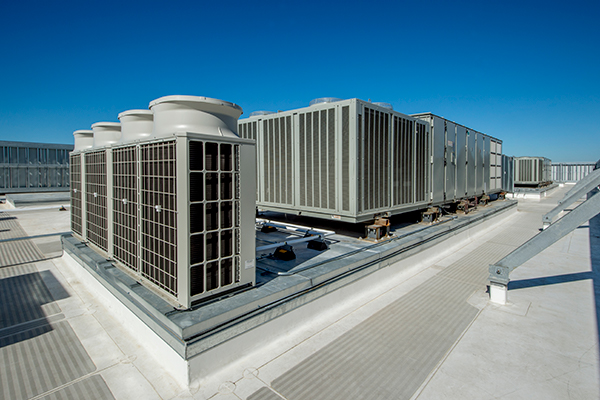New Technology & Process Development
New Technology and Process Development
![]()
Berkeley Lab research explores commercial buildings systems optimization through identifying, developing and evaluating new technologies and methods with energy saving potential.

Measurement and Verification (M&V) Tools Measure Energy Savings in near Real-Time
The growth of smart meter energy data and energy analytics software that accurately measure project energy savings can also capture changes to a building's hourly load shape. Research looks into the areas of M&V tools testing, pilot field evaluations, reporting requirements and advanced M&V best practices here: emis/assessment-automated-mv-methods.
Automated Fault Detection and Diagnostic (AFDD) Performance Testing
As 'big' data and data science comes to buildings, there is growing interest in advanced analytics approaches, but users are bewildered about what the market offers, how offerings are different, and scope of capabilities of today's AFDD software tools. This work will develop publicly available procedures and data sets to performance test AFDD algorithms. More here: https://faultdetection.lbl.gov/.

Integrating Autonomous Commissioning with FDD (Fault Detection and Diagnostics) Tools
This project is defining auto-correction techniques for a diversity of fault types in scheduling, actuation, and sensing of HVAC and lighting control systems. Those techniques will then be transferred to a strong ecosystem of FDD technology and service providers with large market share and field tests conducted with focus on technical efficacy, benefits to operations and maintenance processes. More here: emis/automated-fdd
Machine Learning for Improved Efficiency Analysis and Asset Information
The use of unstructured data combined with machine learning and data fusion techniques, has the potential to enhance today's energy analysis tools. This project will develop automated approaches to determine building characteristics, and retrofit and operational efficiency opportunities. More here: emis/machine-learning
Sensor Suitcase
The Sensor Suitcase is a portable case that contains easy-to-use sensors and other equipment that make it possible for anyone to identify energy-saving opportunities in small commercial buildings. The automated and reusable system combines hardware and software in one package so its users can identify cost-effective measures that save small commercial buildings about 10 percent on their energy bills. More here: news/article/sensor-suitcase-cuts-power-bills
Gradient Boosting Machine (GBM) Models Energy Consumption in Commercial Buildings
The GBM is a machine learning algorithm that provides accurate building baseline energy consumption predictions, and thus accurate saving estimations and cost effectiveness. In recent research, the GBM was applied to a large dataset of commercial buildings and results are discussed here: publications/gradient-boosting-machine-modeling.
